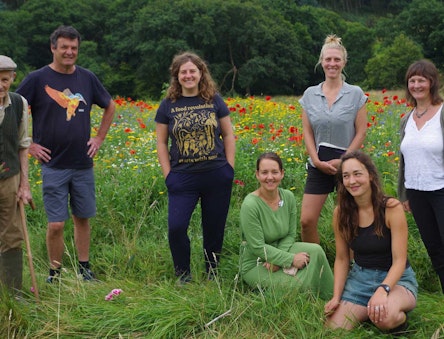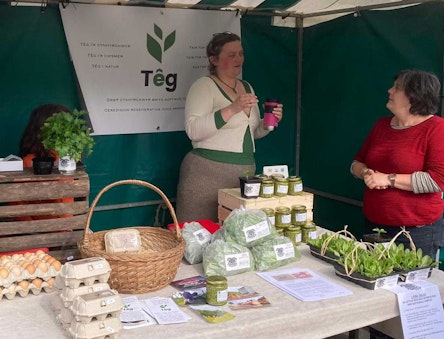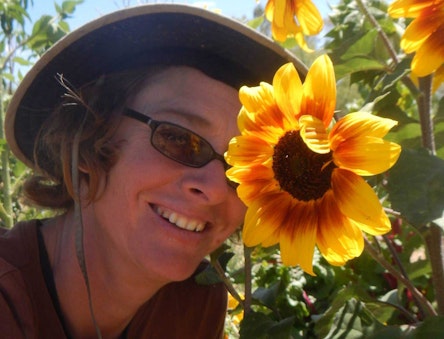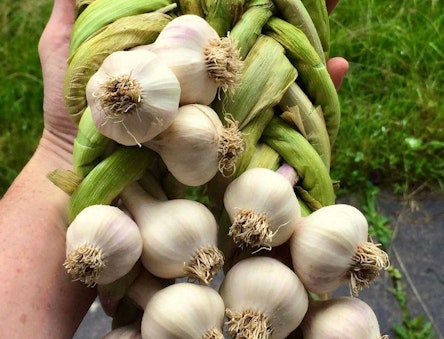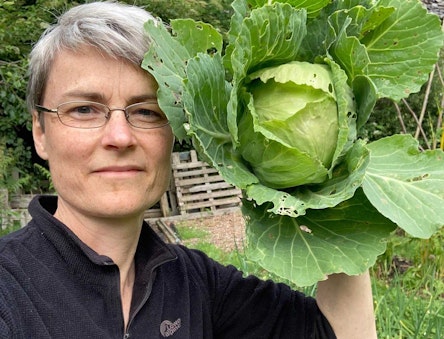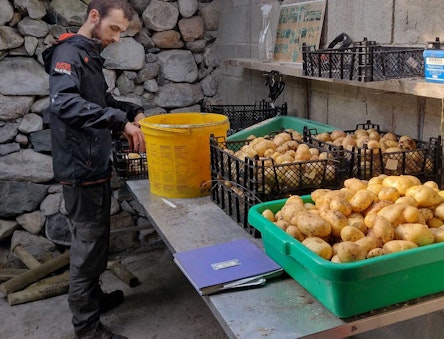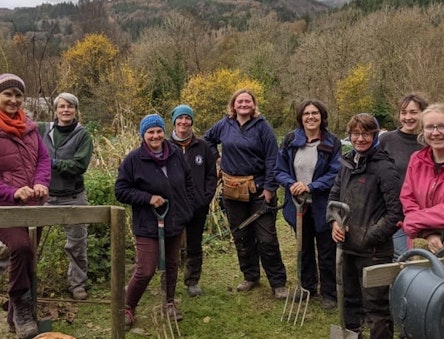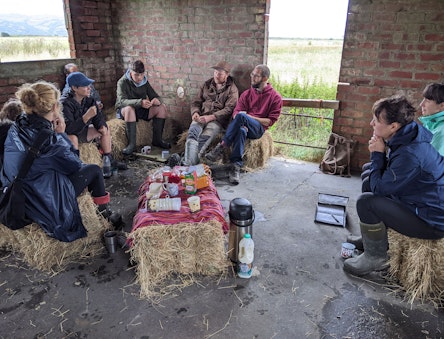
The innovative Pathways to Farming training programme, run by community organisation Mach Maethlon in partnership with CAT, aims to increase the number of people earning a living from locally produced fruit and veg, while also strengthening the resilience of the local food system. Mach Maethlon Director Katie Hastings explains why this is more important than ever.
The empty food shelves of the pandemic and recent disruptions to global food supplies have led to a growing awareness of the fragility of the UK food system and a public re-evaluation of the importance of local food production. A recent study for Tyfu Cymru/Grow Wales found that here in Wales only 0.1% of land is currently used for horticultural food production, and that to meet our ‘5 a day’ requirement from locally-grown produce would require 29 times more land to be given over to fruit and veg production. If we want to feed ourselves in an uncertain future, we need to invest in local food production.
Mach Maethlon is a community organisation based in the Dyfi Valley, giving the community access to land for growing, creating edible public spaces with volunteers, and providing a seasonal veg-bag scheme. For the past five years, we have provided training and support for new entrants into commercial food growing in the local area through our ‘Pathways to Farming’ programme, designed to give people the skills needed to care for their soil, grow food and run a small business.
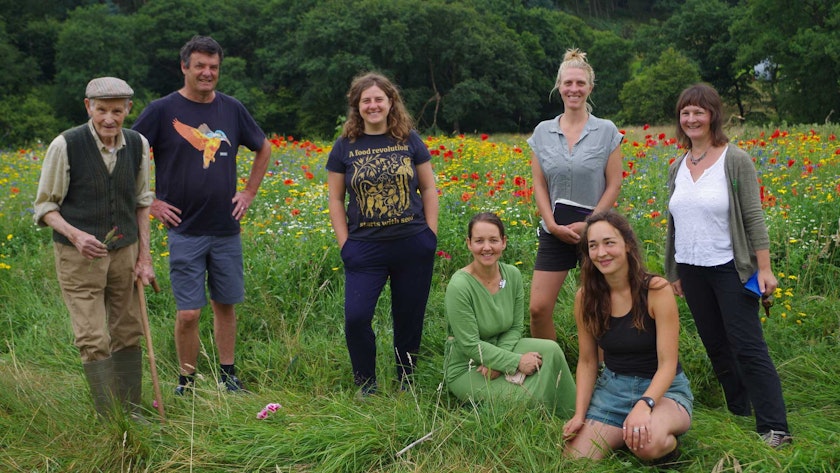
With over 20 years of experience as a professional market gardener, our trainer Emma Maxwell offers each yearly intake of trainees a part-time but intensive crash course designed to boost them into selling fruit and veg to local outlets including shops, markets, cafes and more. They gain practical experience, write crop plans and test-run their market gardening dreams.
But even with all of this training and experience, there are still huge barriers to overcome for small-scale local food producers – from lack of access to land suitable for growing to difficulty competing with cheap industrially produced foods, which are often grown overseas by poorly paid workers or supported by government subsidies not currently available to market gardeners. Our Pathways to Farming project looks at ways to overcome these challenges. 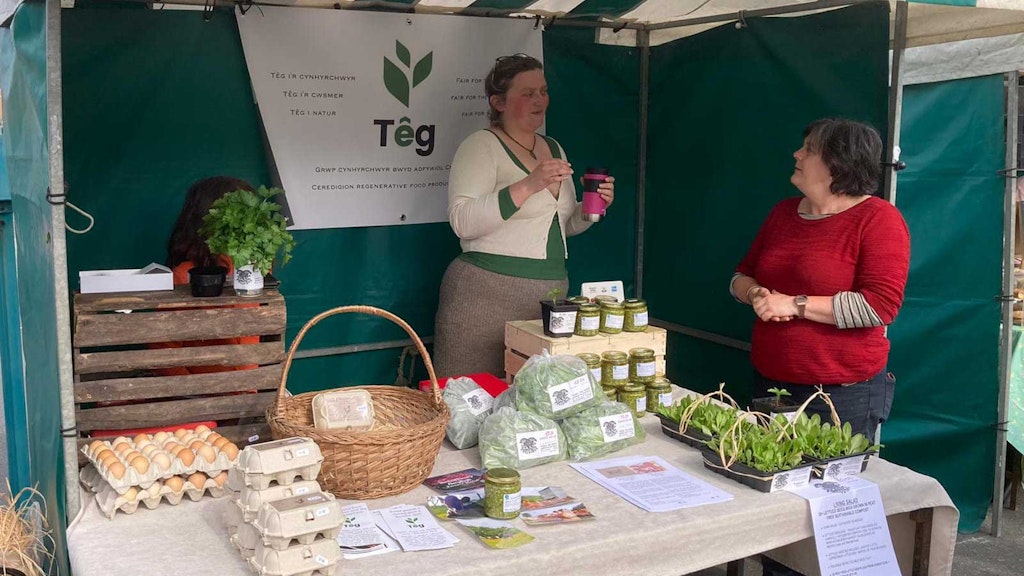
As well as training new growers, we work to build demand for local food, speaking to chefs and running events in which people learn about the importance of paying producers a fair price and valuing the quality of locally produced food. We are partnered with local development trust Ecodyfi, and together we have created the Bwyd Dyfi Hub, allowing producers to sell their food together across the Dyfi Biosphere Reserve.
We are seeing exciting new collaborations emerging on local farms, in which landowners are sharing their land with people wanting to grow food. Mair Tomos of Siop Blodyn Tatws fruit and veg shop, based in Dyfi Wholefoods in Machynlleth, has recently converted a pasture field on her hill farm into a growing space, inviting local flower growers and vegetable producers to grow on the farm alongside her. Livestock farmer Ioan Beechley has invited new farm businesses to share his farm, including a micro dairy (Dyfi Dairy) and a developing ‘no dig’ market garden (with our trainee Ruth Kernohan, see below). Forward thinking people who own land are coming together with those who need land, working collaboratively to help solve the multitude of food security issues on the horizon.
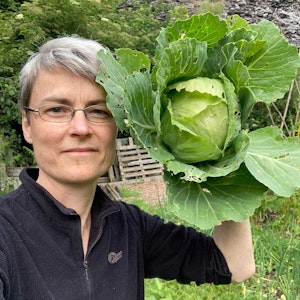
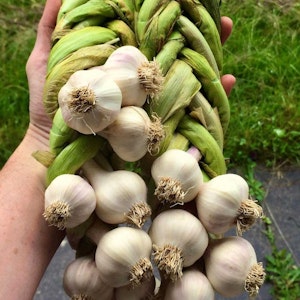
As part of the Tyfu Dyfi project, we have connected with some older farmers in the Dyfi Valley. We have been inspired by their memories of the mixed farming practices of the past, which saw many different crops grown in the Dyfi fields, including potatoes, grains and cabbages. Generously sharing their knowledge and skills to help the next generation of food growers, they are helping us to think realistically about what can be grown here.
I have been a Director of Mach Maethlon for ten years, and during that time I have seen an unmistakable shift in attitudes to local food production in the Dyfi Valley. Market stalls selling local produce have expanded. Local menus celebrate that their ingredients come from the local land. Local growers feel proud of the food they are growing, seeing it valued by those who eat it. More people are taking part in our training, going on to sell produce at farm gates, in the local greengrocer and as ingredients for pizza nights. It’s happening! Slowly but surely vegetables are creeping back into our landscape, showing what’s possible when we work together to create change.
Despite all the barriers, our Pathways to Farming trainees are doing an amazing job, growing and distributing crops across the local area. They have scaled a steep learning curve and now they are ready for local people to eat their crops. Meet the next wave of food growers keeping our bellies full…
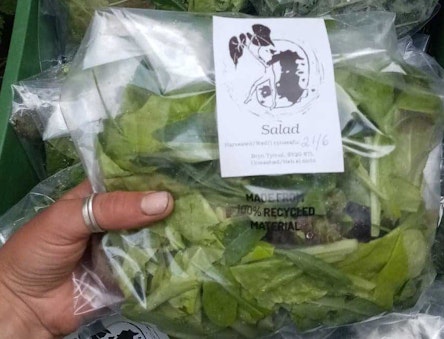
Matilda Gomersall
Tilly has thrown herself into Dyfi Valley growing, producing crops for multiple outlets. She has produced salad, kale and herbs for sale in Siop Blodyn Tatws, with more crops to come, and has been growing four seed crops for the Wales Seed Hub, which will be sold in packets across Wales in winter 2023.
Tilly has also conducted a ‘field scale trial’ as part of the Tyfu Dyfi project, developing a population of fava beans at Cwm Llwyi farm. Producing a highly nutritious protein source that can be grown in our local conditions and stored easily, Tilly is working on replacing imported chickpeas with locally grown beans.
Victoria Burfield
Victoria has been boosting vegetable production in North Wales, taking on pasture land on a farm local to her, and is now supplying her local shop and vegan café in Porthmadog. Victoria is dedicated to being plastic-free on her growing site, using unwanted sheep wool and woodchip as mulch. She has harvested impressive crops of potatoes, salad and radish.
Altaea Fradley
Having run a successful food coop in Aberystwyth for several years, Altaea has a good grasp of what her customers want to eat. She has used her time taking part in Pathways to Farming to experiment with growing crops not usually grown in Wales. Looking to diversify what she can offer in her veg boxes, Altaea has been growing fresh curry leaves, watermelon radish, tatsoi, black mint and celery. Altaea has joined a local agricultural producers’ coop called Têg, working together with other regenerative producers in Ceredigion.
Rhiwena Slack
With some growing experience already under her belt, Rhiwena has been growing produce at the Cultivate community garden in Newtown. Using a polytunnel and some outdoor space, she has been selling produce to the Cultivate deli and eating plenty of tasty crops herself. Rhiwena plans to ramp up her food production in the years to come, while currently enjoying the learning experience.
Victoria Lily
Victoria came to our training with a plan to produce more vegetables for consumption in her small village of Pennal. With good local connections and an established garden, she has been able to sell a variety of crops from her garden gate via an honesty stall. She has also utilised social media to post what is available to her neighbours, ensuring no vegetables go to waste.
Alastair Meikle
Growing on his smallholding in Llanbrynmair, Alastair has been putting his three acres and three polytunnels to good use. Setting up a small local veg box scheme, Alastair has been providing seven families with a weekly box of vegetables, and selling his excess produce on the Fresh and Local stall at Machynlleth market. This year, Alastair is set to increase production and sell into more local markets.
Ruth Kernohan
Ruth is now into her third year growing as EnfysVeg on a micro-plot and selling small amounts of harvested vegetables and plants to grow on. There are exciting plans to expand the market garden at Fferm Llety Llwyd in Talybont. Ruth is also a member of the newly formed Ceredigion regenerative food producers’ group, Têg. Ruth’s background as a Physiotherapist and as an Ecologist has led her to appreciate the ‘Power of the Fork’ for the health of ourselves, our environment and the local economy. Wildlife and biodiversity are at the core of EnfysVeg, and a mosaic of meaningfully sized habitats are planned from the outset so that wildlife is an integral part of the plot. Soil health is fundamental for growing food and the new plot will be set up using no-dig beds and feeding and caring for the soil.
About the author
Katie Hastings is joint Project Coordinator for Pathways to Farming and co-founder of Mach Maethlon. She has been growing vegetables for more than 10 years, including six months volunteering in the CAT gardens.
For more information on Pathways to Farming and Mach Maethlon visit www.machmaethlon.org or email katie@machmaethlon.org
Pathways to Farming is run by Mach Maethlon in partnership with CAT, as part of the Tyfu Dyfi project, funded by the Welsh Government’s EnRaw Scheme.


- Gardening and Agriculture
- News Feed
Related Topics
Related Pages
Related news


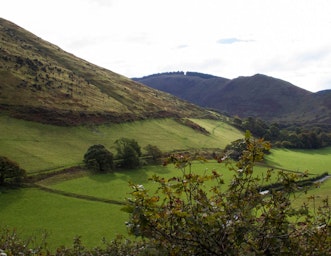
CAT Conversations: Sandy Stevens, CAT graduate
17th April 2025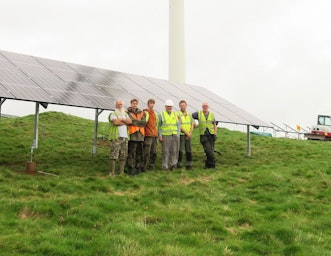
More solar energy for CAT
4th April 2025EMAIL SIGN UP
Keep up to date with all the latest activities, events and online resources by signing up to our emails and following us on social media. And if you'd like to get involved and support our work, we'd love to welcome you as a CAT member.

